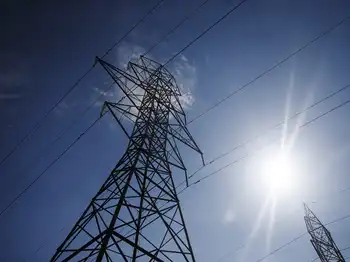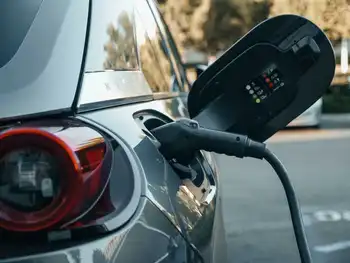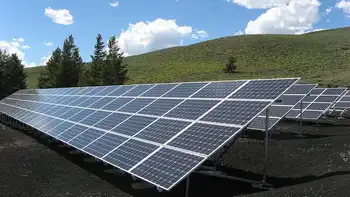Have batteries, will travel
By Globe and Mail
Protective Relay Training - Basic
Our customized live online or in‑person group training can be delivered to your staff at your location.

- Live Online
- 12 hours Instructor-led
- Group Training Available
They could be plug-in hybrids, which include a little gas engine, or they could be all-electric vehicles powered by batteries only. The Chevrolet Volt (one of the former) and the Nissan Leaf (one of the latter) should be on the road in some areas by the end of this year.
It's hard to pin down many automotive executives on just how big they think the electric car market will be, but Nissan/Renault CEO Carlos Ghosn says 10 per cent of all cars sold in 2020 will be electric.
Analysts at Global Insight in Lexington, Mass., has come up with a higher estimate of about 20 per cent of the car market being electric, but that's 10 years later in 2030.
Philip Gott is director of the team that compiled the report, Battery Electric and Plug-In Hybrid Vehicles: The Definitive Assessment of the Business Case.
Vaughan: To get to your 20 per cent figure for 2030 — the big unknown is still batteries, isn't it? At today's prices, the lithium ion batteries could cost more than the rest of the car.
Gott: Well, today the batteries would certainly cost more than a small car.
It's incredible to think this way, but even though the battery was invented over 200 years ago this is still pretty early days.
The battery has never been challenged the way it is for a motor vehicle in terms of the physical environment, but more importantly the amount of energy that you really need to store and the rate at which you would like to get it in and out of the battery.
So we're really looking at chemistries that haven't been tried before. We're still trying to figure out how to make the electrodes — the anode and cathode — effective.
Interesting, but what about the cost?
When you haven't settled on a design or a make-up, it's really pretty hard to figure out how to make it cost-effectively....
But if we do settle on a design and, even taking today's material costs, the final cost will be under $300 per kilowatt-hour.
That's the magic number everyone agrees will allow the battery electric vehicle to be cost-competitive with conventional vehicles. And we don't see that as a major hurdle going forward.
Some people are saying that when everybody plugs in we're going to melt the electrical grid. What's your view?
I guess if you converted all 1.2 billion cars that will be on the road by 2030 to electricity that probably would happen.
Utilities in Southern California are really concerned and are being proactive because these cars aren't going to be evenly distributed. Birds of a feather flock together. Early adopters tend to live in similar neighbourhoods....
The way the North American power grid is set up, the end-of-line transformers feed anywhere from three to 10 houses. And if all of those three to 10 people get on and they plug in at the same time, they could shorten the life of that transformer so that it will last months instead of years or decades.
The utilities simply need to know where the electric vehicles are going and they need to put in the right-size transformer at the right time.
At the moment it appears that it will be much cheaper to plug in rather than buy gas.
It is if electric power rates per unit of energy stay about the same as they are relative to liquid fuels per unit of energy.
But there are concerns that the cost of electric power for vehicles will increase. For every electric vehicle that goes in, you've reduced the liquid fuel demand.
In countries like the United States and Canada, governments look at that as a significant source of revenue. So, per vehicle, their revenue from liquid fuel taxes will go down and you can expect that at some point taxes will be levied on electricity for vehicle use.
The pure electric cars have few moving parts and are cheap to build. How does that change the automotive industry?
It reduces the barriers to entry.
One of the big hurdles to entering the car building business these days is to build an efficient engine. There's a huge investment needed for manufacturing and there's a huge challenge in certifying and making engines meet the standards and then standing behind them for 150,000 miles. You've got to have a pile of money there for warranty work.
The electric vehicle pretty well eliminates all that stuff. The pollution goes over to the power plant and it's somebody else's problem.
So you have a lot of start-up companies.
Especially in China.
The Chinese think it levels the playing field and it will.
I've been speaking to the Chinese manufacturers and I've said, you're going to sell a lot of these electric vehicles to your Chinese customers. They say, oh no, Chinese customers want piston engines; they want to be like you guys. We're going to sell electric cars to you.
Their government is being very clever.
They're saying we know we're never going to get ahead of the Europeans and Americans and Japanese in terms of powertrains — they've got a 100-year head start.
But the playing field is pretty darn level when it comes to battery electric vehicles and that's where we can possibly gain a competitive advantage.











